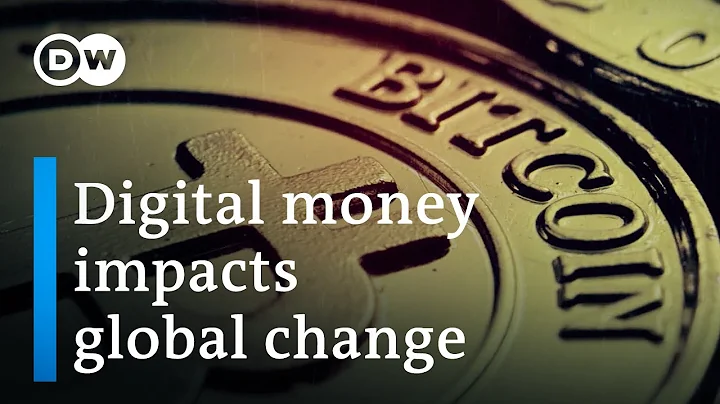
For more than a decade, Silicon Valley tycoons have been promoting Bitcoin and blockchain-based cryptocurrencies, claiming they would transform global commerce. On the contrary, Bitcoin has long since died as an digital currency and has become nothing more than an empty speculative asset whose value recently plummeted from $60,000 to less than $20,000. Meanwhile, while these hypocrites are now promoting a mysterious internet world called Web3, India is scrambling to implement the Unified Payments Service (UPI) promised by the cryptocurrency crowd.
A French company, Lyra Network, has just announced that it will deploy UPI. The move into EU is just the latest international move by UPI, an alternative payments system designed to be safe, secure and interoperable between different payment companies. Merchants in Singapore, Malaysia, Thailand, Philippines, Vietnam, Cambodia and Bhutan accept UPI payments through the two-digit code payment system common in Asia. India's National Payments Corporation is currently in talks with Australia to integrate UPI with Australia's own nascent Faster Payments Rail, known as the New Payments Platform.
The reason for its widespread adoption abroad is that UPI has proven to work well for a very large number of people. Additionally, UPI has an open protocol upon which other technologies can be built upon, creating a financial payments network that is larger and more useful than its competitors. By facilitating what blockchain is meant to do—cutting out intermediaries and inducing greater competition—UPI could force the world to accelerate innovation in payments technology.
This is part of a growing trend of key technologies emerging outside the usual innovation corridors of the West. China and India have gone from having only a handful of valuable startups to having dozens of unicorns with billion-dollar valuations. It’s also no secret that Asia tends to be ahead of the West when it comes to mobile app and payments innovation. China has effectively become a cashless society, but payments are dominated by two super apps that stifle innovation and pose significant privacy risks.
With the Aadhar digital identity scheme expanding economic inclusion for hundreds of millions of citizens, and UPI creating commerce platforms, India has the ability to democratize e-commerce and rein in technology companies that are building monopolies. A key part behind UPI is to create a neutral marketplace and commerce platform that is low-cost and easy to use. To ensure healthier competition, RBI has very wisely placed clear limits on the market share of UPI payments. That may have foreign companies and some venture capitalists clamoring for government intervention, but that hasn't stopped more than 300 banks and dozens of payment apps and startups -- including subsidiaries of many major U.S. tech giants -- from joining UPI.
Access to real-time secure payments has become an important step towards a more just society. Before UPI, corruption, bureaucracy and a chaotic banking system made it almost impossible for the government to reliably get money to the poor. So far, it’s unclear whether UPI has meaningfully reduced inequality in India, but there are signs that positive things are happening. There is no doubt that UPI has brought affordable real-time payment services to hundreds of millions of people who might otherwise have paid exorbitant fees. The best proof of
UPI's usefulness is how popular it has become. In just six years, the volume of transactions through UPI has risen dramatically and now exceeds $100 billion per month. For more than 150 million monthly users, these transactions are primarily conducted through mobile wallets and payment apps. The Reserve Bank of India expects payments via UPI to account for 8% of the country's GDP by 2025, and the bank and NPCI are working together to expand UPI's reach and allow consumers to link their credit cards with UPI transactions. UPI is already being used to send money from abroad, undercutting traditional remittance payment rails which charge 3% to 5% of the total transaction value.
Since UPI transactions are currently free and will ultimately cost merchants and consumers only a fraction of what it would cost to move funds on private payment systems such as those operated by Mastercard and Visa, the UPI payments rail could bring India's GDP increases by a meaningful amount. As for security issues, UPI is also designed to require strong two-factor authentication, making it less susceptible to fraud than older systems in rich countries.
So while blockchain may be all the rage in Silicon Valley, UPI has become a global darling. Facebook , Google and Walmart have all directly or indirectly given a vote of confidence in UPI. All three giants' payment subsidiaries are using UPI to help customers in India make payments. UPI was so good that Google submitted it to the U.S. Treasury Department as an example of good implementation for open payment standards and technology. Shiny new technologies like the
blockchain may be cool, but less flashy efforts to push open standards and interoperability are creating a real revolution, and that's happening among tech gurus in Shoreditch, UK, and Silicon Valley, US. It is developing rapidly under our noses. India is leaping to the forefront of the world very keenly.
Vivek Wadhwa, Ismail Amla, and Alex Salkever are co-authors of "From Incremental to Exponential: How Big Companies See the Future and Rethink Innovation," a book about building billion-dollar businesses.





















